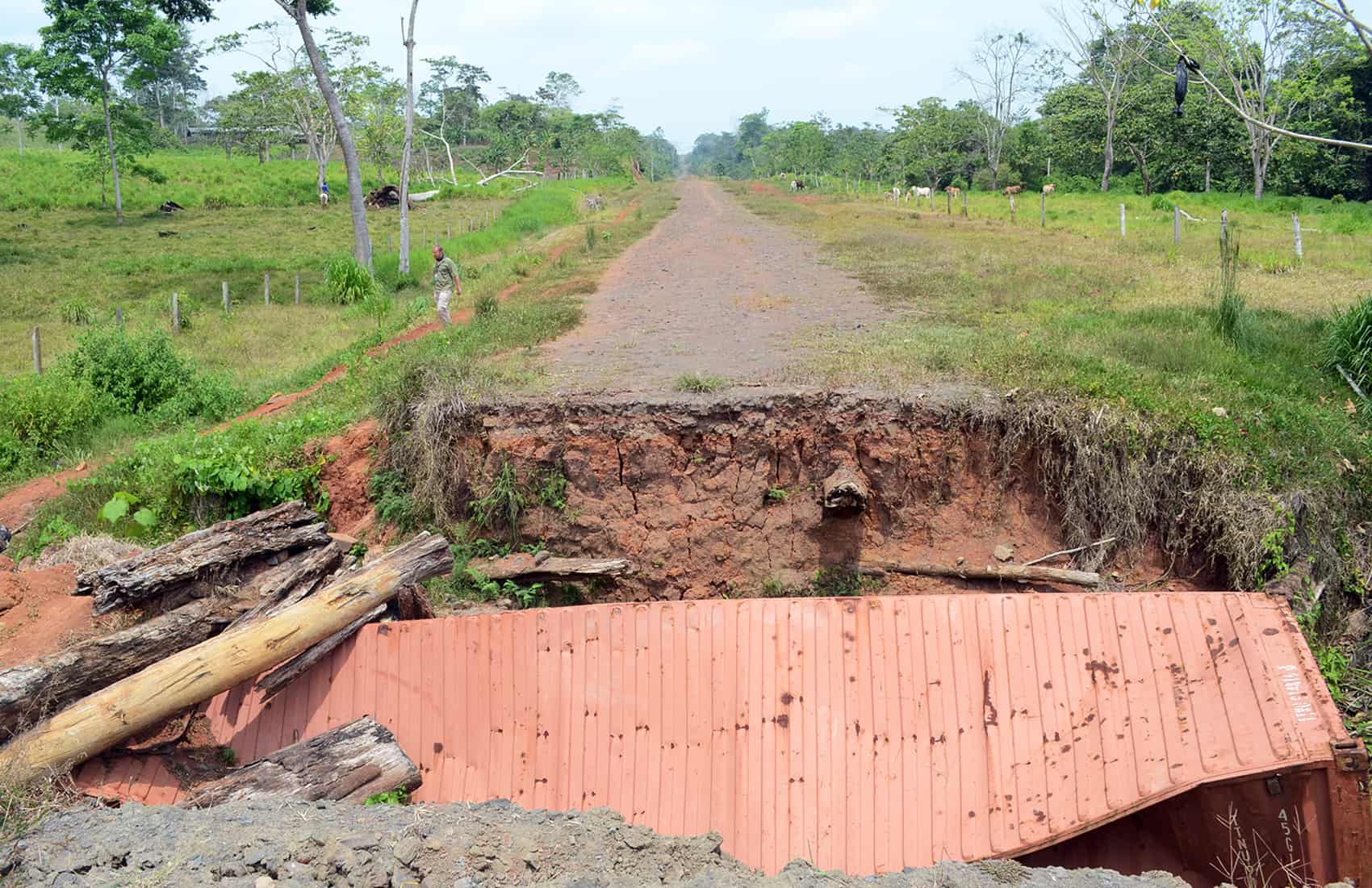Costa Rica’s General Prosecutor Jorge Chavarría Guzmán said he is almost ready to file charges for corruption in the failed construction of a road along the border with Nicaragua. The road cost taxpayers more than ₡25,000 million (some $45 million).
Chavarría made the comments during an appearance before the Legislative Committee on Public Income and Spending Control on Thursday afternoon. Lawmakers had called him to appear to explain the slow progress on various corruption investigations, among them the case of the controversial border route, officially known as Route 1856 but commonly known as “la trocha.”
The chief prosecutor said his office has gathered enough evidence to file criminal complaints against 48 people. “That’s why this case is moving slowly, but I guarantee we will move forward with an indictment soon, before the end of this year,” he said.
Chavarría did not mention any names but the list likely will include six people arrested shortly after the scandal became public in 2012. Among them are officials from the National Roadway Council (CONAVI) and private contractors involved in the construction of the 160-kilometer road, which was inaugurated in 2012.
President Luis Guillermo Solís promised during his presidential campaign in 2014 that, if elected, he would finish the route. CONAVI Executive Director German Valverde, however, told La Nación in September that the project will not be completed due to lack of funding.
Corruption case
Former president Laura Chinchilla Miranda publicly denounced in May 2012 that CONAVI officials had received bribes from private contractors and construction equipment suppliers to secure contracts for the project.
General Prosecutor Chavarría told legislators that the evidence collected by his office includes 23 volumes of documents, 350 files containing invoices and 40 boxes of documents seized during 58 raids. He said prosecutors have a list of 250 possible witnesses.
Besides the large volume of evidence to cull, Chavarría told lawmakers the case has suffered delays because some of the prosecutors who began working on the case were transferred to other offices, promoted or no longer work for the Prosecutors’ Office.
“Putting together a case like this has been a martyrdom. Those who believe that we have a modern judicial system are wrong,” Chavarría said at the hearing.
Failed solution
The construction of Route 1856 was President Chinchilla’s response to a conflict with Nicaragua dating from 2010 over the rights of a border territory that both countries claimed as their own. The conflict extended to a dispute over navigation rights on the San Juan River, a natural border between the two countries.
The border road was supposed to provide Costa Rican residents of the area a key transportation route; Up until la trocha was built, residents could only travel along the border by boat on the San Juan.
But Nicaraguan army officials began detaining Costa Rican nationals for allegedly invading their country. Some residents also reported that Nicaraguan soldiers entered Costa Rican territory and arrested them inside their homes, claiming they were in Nicaraguan territory.
The situation escalated when Nicaraguan soldiers and other nationalist groups set up camp on a border territory, claiming it belonged to that country. They also started dredging the river, causing damage to riverbanks on the Costa Rican side of the river.
The conflicts led to mutual accusations before the Hague-based International Court of Justice, which ruled in December 2015 that the disputed territory belongs to Costa Rica, and that Costa Rican residents have the right to navigate on the San Juan.
Wasted funds
President Chinchilla’s administration began the construction of Route 1856 in December 2010. She granted the project to private contractors without going through a public bidding process as required by law.
At the time, she justified her decision because of the emergency situation that border residents were facing due to the actions of the Nicaraguan soldiers.
Chinchilla inaugurated the road in February 2012, despite claims from local residents that the work was far from complete.
Subsequent inspections by experts from the University of Costa Rica released in May of that year found that shoddy work on the road’s drainage systems could leave the road in danger of collapsing during the rainy season.
Those predictions turned out to be correct, and the first rains of the season washed away several stretches of the road. Various bridges collapsed.
In addition, local media investigations reported alleged kickbacks and corruption between government employees and companies hired to build the road. Reports also stated that various contractors did not have any experience in building public roads.
The scandal prompted President Chinchilla to order the removal of Public Works and Transport Minister Francisco Jiménez, CONAVI Executive Director Carlos Acosta and other public officials.
Agents from the Prosecutor’s Office and the Judicial Investigation Police raided 36 companies, government offices and homes of public officials suspected of involvement. During the raids, agents arrested various CONAVI officials and private contractors.
The Prosecutor’s Office opened an investigation shortly afterwards, and started collecting evidence in hopes of proving embezzlement, influence peddling and bribery.






